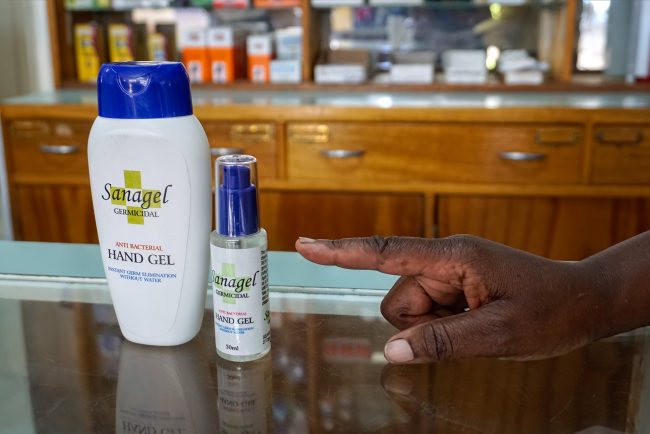Source: In Zimbabwe, Vital Medicines in Short Supply as Coronavirus Stalls Imports
Empty shelves of face masks and sanitizers have made headlines around the world in the wake of the global coronavirus crisis. But in Zimbabwe, another medical shortage – with life-threatening consequences – is quietly sweeping the country.
HARARE, ZIMBABWE — At a pharmacy in the Fife Avenue Shopping Center in Zimbabwe’s capital city, patrons roam the store looking for masks, sanitizers and latex gloves.
Stocks have improved in recent weeks, but customers still leave empty-handed because prices have doubled.
Stocking a pharmacy in Zimbabwe was difficult long before the threat of the coronavirus shut down the country on March 30.
Zimbabwe has so far confirmed 56 cases of COVID-19, the disease caused by the coronavirus, and four deaths.
The country relies on India, China and South Africa for nearly all of its medical supply imports, which include drugs and medical consumables such as personal protective equipment, syringes and catheters.
Pharmacist Liberty Zibako says it’s not the lack of hand sanitizer he’s worried about. He says he has many customers who rely on him for blood-pressure and cholesterol medications. With the border to South Africa closed and air traffic to the country severely limited, he’s out of stock.
“I have a number of customers who have been looking for high-blood-pressure drugs like Diovan and atorvastatin for cholesterol, but l no longer have them in stock,” he says, adding that he used to keep large quantities on hand. But after nearly eight weeks of lockdown, his supply has dwindled to nothing.
The lack of those two drugs in particular is leaving many customers vulnerable, Zibako says.
High blood pressure and coronary heart disease are among the leading causes of death in Zimbabwe.
“I do not know when I will be able to restock,” he says.
Zimbabwe’s ongoing economic crisis has left millions jobless and suffering under crippling inflation.
From grocery staples to lifesaving medications, Zimbabweans rely on regional and international imports and informal traders who bring goods across borders for survival. And the coronavirus lockdown has only exacerbated the shortage of basic goods here.
Zimbabwe is not alone in relying on international imports for pharmaceuticals. There are just 375 pharmaceutical manufacturers on the African continent, mostly in northern Africa, for a population of more than 1.3 billion people. By comparison, India has more than 10,500 drug manufacturers and a population of roughly the same size, according to 2019 research by McKinsey & Company, a global management consulting firm.
Zimbabwe, which once manufactured drugs locally, now buys 80% of its medicines and drugs from India, according to a 2019 report from the minister of Health and Child Care.
“Our situation is more fragile because we are so reliant on the rest of the world,” says Dieter Balzer, managing director of KDB Healthcare, a pharmaceutical supplier in Zimbabwe. “Before we used to pick up a phone to talk to someone in South Africa, and they would deliver to you what you need. But this is not the case anymore.”
The coronavirus pandemic has highlighted the country’s reliance on imports, says pharmacy owner Jocelyn Chaibva. She is unable to stock in-demand drugs and high-quality personal protective equipment.
“The future is blurred,” she says. “But we are driven by faith that we can get back on our feet and restart when all this is over.”
Gamuchirai Masiyiwa, GPJ, translated some interviews from Shona.

COMMENTS